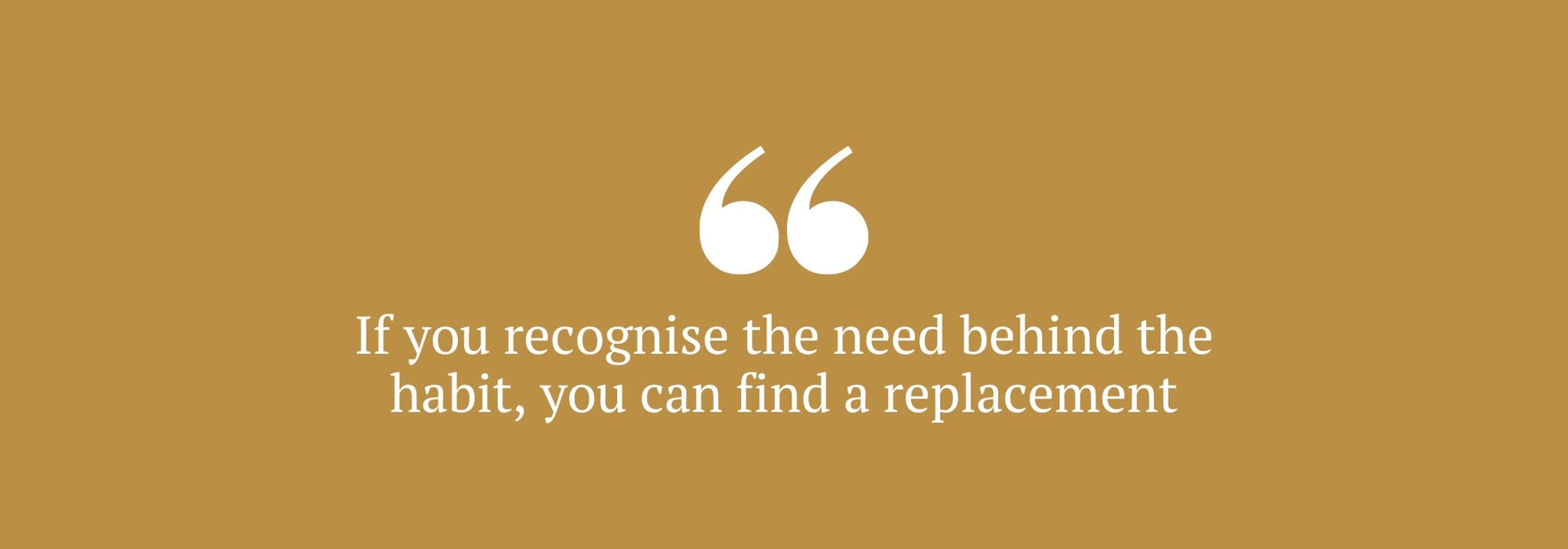Overexposure to ‘feel good’ hormones can send us into an addictive hunt for quick dopamine releases, that inevitably leave us deflated when it doesn’t last. So, could cutting out dopamine sources actually help us feel happier in the long-term?
Modern life is full of little highs; from the very moment we wake up, we are tempted into scrolling through social media with its likes and loves. Then, there’s a morning pick-me-up of coffee or tea, and when we feel our energy start to slump, a sugary snack tempts us.
While the temptations might be different, there’s one thing that they all have in common, and that’s dopamine. Dopamine is a neurotransmitter, also known as the ‘feel-good’ hormone, that is released through pleasurable experiences. It’s part of the brain’s reward system, and plays a positive role in motivating us to do things that result in good feelings, impacting everything from our mood and emotions, to sleep, memory, learning, movement, and even our attention spans.
From a survival perspective, it makes sense to release dopamine in order to keep us seeking healthy food, exercise, and a quality night’s sleep. Dopamine rewards can also motivate us to keep working towards our goals, with that positive boost that comes with accomplishment.
However, in our fast-paced modern world, we can get into cycles of dopamine addiction. Alongside the more healthy habits, we also get dopamine hits from spending time on social media, playing video games, and eating junk food.
Let’s be clear: there’s nothing wrong with enjoying life’s pleasures. However, the problem is that our brains were never designed to have such overexposure to dopamine highs. And as a result, constantly seeking fleeting highs can actually leave us feeling low afterwards.
I spoke to Cecilie Mikalsen, a behavioural change coach, about the problems with dopamine addiction, and how we can overcome them.
“It’s like blood sugar. If you have a croissant and chocolate milk for breakfast instead of a nutritious, protein-rich breakfast, your blood sugar will spike and then go down below what the original level was. So you keep eating sugar, and then you have highs and lows,” Cecilie says. “It’s the same way with dopamine. If, for example, you post photos on social media, and you get a lot of likes you have that high. Then once that high is passed, you’re down below where you were when you started.’’
Cecilie distinguishes between what she calls ‘cheap’ and ‘deep’ dopamine. “A deep dopamine habit is one that you have consciously built, like running or exercise – doing things that are good for you. A cheap dopamine habit will leave you feeling worse after, and craving more.’’
In the long-term, seeking cheap dopamine highs affects not only our daily happiness, but can also have other negative impacts. For example, excess caffeine can cause anxiety and disturb sleep. Social media consumption can take up time that could be used for more nurturing pursuits, or leave us feeling self-conscious with ‘comparisonitis’.

So, how can we get out of the cycle?
A dopamine fast (also known as a dopamine detox) could be the answer. It’s a time when you reduce your exposure to dopamine in order to lower the threshold of what gives you an emotional boost. A dopamine fast also allows us space, time, and focus to seek out the deeper dopamine highs that are more beneficial in the long-term. For example, meeting up with a friend and having a long conversation, rather than spending an hour online shopping. Equally, it could be reading a book you’ve had waiting on your bedside table for months, instead of distracting ourselves with online information by scrolling mindlessly.
“The ultimate benefit is that you’ll feel freer,” Cecilie notes. “It’s about the satisfaction of knowing that you are in control of your life, instead of letting your phone or chocolate etc. control you.’’
What’s worth noting is that dopamine fasts are more suitable for people who are engaged in habitual behaviour, rather than full-blown addiction. For more serious situations, professional help may be needed from a GP, therapist, or organisation that specialises in addiction. In this instance, Cecilie recommends a dopamine fast as more of an intervention for people who “have a habit that is on its way to becoming an addiction”.
To give it a go, Cecilie suggests removing one habit at a time, and setting yourself a clear goal. As an example, you might decide to take a week off social media, and avoid sweet treats or caffeine. She also recommends: “If you’re cutting down gradually rather than stopping completely, then have a timeline. How long are you wanting to stop? My recommendation is at least two weeks to get something out of it.’’
When undertaking a dopamine fast, it’s natural to have cravings and pangs for that habit you’ve relied on in the past. In this case, it can be helpful to exchange your habit for something more sustainable.
“If you have a sugar addiction, every time you want to eat something sugary, swap it with something that’s healthy, like a fruit or vegetable,” Cecilie suggests. “If you feel the urge to go on social media, read a book. Social media can partly be about hiding away from life. You can escape life by reading a book. Or it could be about craving human contact. If this is the case, you could message or arrange to meet up with a friend. If you recognise the need behind the habit, you can find a replacement.’’
Of course, the reality is that changing habits isn’t always as easy as it sounds. If the fast gets tough, support from a friend or coach can be helpful. Cecilie runs a free, five-day detox online course, and also offers one-to-one coaching support to help ensure people stick to their goals. However, you might find that just telling a friend can be enough to hold you accountable.

Of course, a fast isn’t forever. So, when it comes to reengaging with habits afterwards, how do we approach this? The good thing about a break is that it can be a chance to take stock. Do we want to be on social media, or are we enjoying the freedom without it? Are there certain platforms we do want to cut out completely? And when it comes to sweet treats to beat the afternoon slump, have we found healthier or more effective ways to boost our energy instead of turning to sugar?
Cecilie says: “Sugar, alcohol, or cigarettes, I have no issue telling people to just stop.” But with social media, she takes a more nuanced approach. “Social media is such a big part of society. A lot of people tend to feel left out if they’re not there. It’s not about the attention for a lot of people, it’s about being included in the herd.’’
So, know that it’s OK if a detox helps you reassess your behaviours and habits, or gives you a break, without having to say goodbye to something forever. It’s more about recognising when a habit is becoming unhealthy, and how you can engage with it in a way that’s more beneficial for you.
And in the long-term, don’t beat yourself up if you notice you’re falling back into bad habits – you’re only human. The main thing is that awareness is key. Cecilie says that when you notice it, “that is the time to repeat the detox”.
So, if the happiness from life’s pleasures seems fleeting, trying a dopamine fast could help you find a longer lasting joy.


Comments